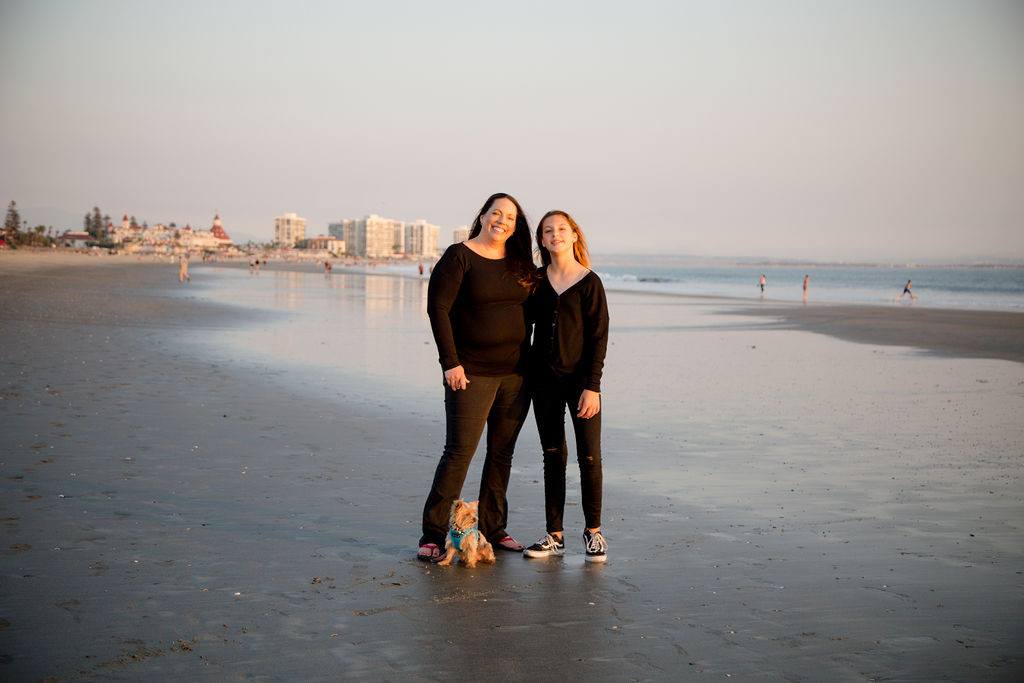
How to Trust Your Gut – A Mom’s Guide to Diagnosing Dyslexia
| Identification, Specific Learning Disability (SLD), Trust Your Gut Series
By Hilary Laxson

When you’re a parent sometimes you know something is up.
- Does your child struggle to read?
- Do they have trouble spelling?
- Is it even difficult for them to spell their own name?
- Do they seem bright, but often look confused?
- Do they come home from school exhausted?
- Have you considered that their struggles might be connected to a learning disability?
Don’t wait, early intervention is key to success!
Growing up in a family where my father was a medical doctor (radiologist) and my mother was a surgical intensive care nurse at the Veterans Administration you’d think my family would have known more about learning disabilities than most families. Unfortunately, most medical doctors and nurses do not receive any training or education on learning disabilities as part of their schooling. Dyslexia was on my radar, but we didn’t understand the gravity of it until years later.
By the time my daughter was three years old, we saw signs of struggles with school and learning. At the time, we were stationed in Honolulu, Hawaii. We enrolled her in a private preschool in downtown Honolulu when she was two years old because, as a US Coast Guard family, there was not a space or priority in the Child Development Centers on Hawaii run by the Navy, Army or Air Force. Pretty soon after we started school, the school started saying she couldn’t write her name, letters, or numbers. She also had problems following directions and staying on task. She couldn’t tell time or tie her shoes, skills that took years to develop.

Dyslexia is hereditary in families; I knew we had a family history of dyslexia and ADHD on both sides of our families. What we failed to grasp was the complexity and severity of dyslexia in my daughter’s life. Dyslexia is passed at a rate of almost 50 percent between parents and children. When she was four, she started the pre-K program at another private school on Navy land, in Honolulu which gives preference to active-duty families.
Teachers at the new school called telling us she couldn’t write her letters and had trouble holding the pencil. Because Tricare doesn’t cover educational supports, I decided I would just hire additional help for her. I hired one of the teachers to work with her three days a week after school on her written handwriting and letters. At the time, even being a trained paralegal with a graduate degree, no one ever told me we could get an evaluation at public expense under Part B of the IDEA Act.
If I had asked for an evaluation for special education services at public expense I might have saved a lot of money out of pocket and a lot of time.
Also, I could have gone to my pediatrician again and asked for referrals for occupational therapy and physical therapy. My pediatrician never told me that I could get services from the school as well, or that I could have gotten other support from Tricare.
One Way to Get an Evaluation for Dyslexia
Being raised in a medical family growing up, we took the medical route versus the school route to get my daughter screened for learning disabilities. We took her to the pediatrician at Tripler Army Hospital and asked for a referral to a child psychologist based on our family history of ADHD. As most active-duty families know, under Tricare Prime you must have a referral to a specialist to receive an authorization to another specialist. When you are trying to diagnose a learning disability or other early development issues you might need to see a variety of specialists.
If you have Tricare Select you can go straight to a neuropsychologist or developmental pediatrician. According to Tricare’s website, “TRICARE doesn’t cover diagnostic, evaluation, treatment, services or supplies (including special education services) for learning disorders, such as dyslexia.” Dyslexia is a type of specific learning disability characterized by poor decoding, word recognition and spelling. All Dyslexia is a Specific Learning Disability SLD, but NOT ALL SLD is Dyslexia.
There are many psychological tests which overlap in use. For example, tests for ADHD might have processing measure components used for diagnosing SLD Specific Learning Disabilities-Reading (Dyslexia is an alternative word per the DSM-5). As another example, some psychological tests for suspected Autism cases can have overlapping uses to diagnose SLD-Reading (Dyslexia). In order to diagnose any medical or educational challenge, a comprehensive battery of tests are used to evaluate the individual’s abilities and performance, including IQ, psychological processing and academic achievement.
We don’t know if you have dyslexia or any other learning disability/disorder without psychological testing. Therefore, your best chance of success of obtaining Tricare coverage is asking your PCM to write a referral to a psychologist (Neuropsychologist, Child Psychologist, or Developmental Pediatrician)using the code which matches your symptoms. I would also get an additional referral to a Speech Language Pathologist SLP (Not a speech therapist) to look for other language disorders (such as auditory processing disorders, receptive expressive disorders and more).
Tricare does cover Speech Language Pathology testing and intervention which sometimes are medically necessary for SLD-reading and other language processing disorders such as receptive expressive disorder. The catch 22 is whether it’s medically necessary which is ultimately a decision made by a medical professional. Additionally, Tricare covers Auditory Processing Disorder testing and intervention which may have overlapping uses.”
When you are testing for dyslexia your best bet is a neuropsychologist, child psychologist, or speech language pathologist, but they must have additional training in dyslexia.
In those early years my daughter seemed frustrated a lot. I would tell her to clean her room and she just couldn’t get it done. She heard my directions and could repeat them, but didn’t seem to follow them. Today I know those struggles are due to her multiple learning disabilities like ADHD, dyslexia, auditory processing disorders, and language processing disorders, but at the time I really thought she just wasn’t listening or was too hyper. She joined a soccer team at three or four for the first time and loved to play, but it kind of seemed like she was confused on the field.
Today with 10 years under my belt of dealing with all this I know she probably did not process the words the soccer coach was yelling from the side of the field nor could she follow directions. (This is a sign of auditory processing disorder which can be diagnosed at age seven). Many dyslexics show early signs of getting lost often and many will have trouble with directions the rest of their life.
It is possible to identify a child with dyslexia or Specific Learning Disability (SLD) in reading, writing or math, as early as three or four years old with a properly trained neuropsychologist, child psychologist or developmental pediatrician who sees a lot of dyslexia cases.
A common myth is that you can’t test for dyslexia until age eight years old, or that schools can’t test for dyslexia.
A public school district employs school psychologists, audiologists, speech-language pathologists, and other professionals. However, these professionals don’t give a diagnosis they can only identify a disability when it is in a school setting. If you want or need the diagnosis, you will need to go to a licensed child psychologist, neuropsychologist, or speech-language pathologist to get diagnosed. You can use your Tricare benefits to do this. This is why I tell active-duty families to max out testing and resources from both medical and educational.
When Can You Diagnose Dyslexia?
According to the International Dyslexia Association (IDA) dyslexia is:
“Dyslexia is a specific learning disability that is neurobiological in origin. It is characterized by difficulties with accurate and/or fluent word recognition and by poor spelling and decoding abilities. These difficulties typically result from a deficit in the phonological component of language that is often unexpected in relation to other cognitive abilities and the provision of effective classroom instruction. Secondary consequences may include problems in reading comprehension and reduced reading experience that can impede growth of vocabulary and background knowledge.”
If gaps in phonological processing can be identified as early as ages three-five, you can immediately begin to remediate the problem and teach them differently. Catching dyslexia early also helps to reduce the time, energy, and money it costs to remediate someone with dyslexia when you start in kindergarten.
Forty-two percent of all children served with an IEP (Individual Education Program) under Individuals with Disability Education Act are eligible under Specific Learning Disability (SLD). Another 13 percent are eligible for an IEP under Other Health Impairment (OHI). OHI is the category under which a large portion of children with ADHD are eligible. It is important to note that dyslexia and ADHD coexist at least 50 percent of the time. You’ll find even additional kids with dyslexia and ADHD served under OHI because it is easier to get an IEP under OHI instead of SLD.
A parent’s ability to know and recognize early signs of a potential learning disability (such as SLD, dyslexia, ADHD) is key to a successful path of long-term success.
How to Get Tested for Dyslexia
In general, there are three paths to get tested or identified for SLD or dyslexia, or any other suspected disability:
- Pay cash to a neuropsychologist, child psychologist or developmental pediatrician.
- Use your medical insurance (Tricare).
- Request an evaluation for special education services from your local public school district under your rights from the IDEA Act.
There are positives and negatives to all of these paths, but as an active-duty family I recommend using both the Tricare route alongside the public school route. The problem with going only to the school is you don’t get a medical diagnosis. The medical diagnosis can be used to get other services from Tricare. The problem with the school route is that it can take six months or longer from initial request for evaluation to complete testing and writing and further testing to get support in place due to the bureaucracy of the public school systems. This can be even longer in a COVID-learning environment.
What’s Next?
Once you are diagnosed, the path to remediate dyslexia is not direct. If you drew it out it would probably look like a three-year-old scribbled on the page. What works for one child even when they are the same age, diagnosis, and intelligence level does not necessarily mean it will work for your child. The general opinion is that a dyslexic needs a reading, writing, spelling or math program which is evidence-based, multi-sensory and has a structured Literacy (MSL) approach.
Some of the more well-known programs using Multi-Sensory or based on Orton-Gillingham are Barton, Wilson, Take Flight, or Spire. Most newly diagnosed Dyslexics will need at a bare minimum of two hours a week one-to-one tutoring using a multi-sensory reading program to make progress. Realistically they will achieve the most success with three to four hours a week one-on-one with less than two weeks break a year including summer and winter vacations.
Resources
Here is a free letter template created by Resource Partner, Parent Centers, you can use to request an evaluation for special education services from your local public school district. It should be emailed and mailed to your principal and head of special education services at the district office. We strongly recommend you do so in writing to create a paper trail (this is not required by law).
Up Next
Because dyslexia is a significant struggle within our community we will cover a variety of topics on the diagnosis featuring dyslexia expert Hilary Laxson.
In her next piece she will address what happens when a reading disorder/ dyslexia diagnosis is delayed until the child is eight years old.

About the Author
Hilary Laxson was a Coast Guard spouse for 12 years and has been in the military community since 2000. She graduated from the University of Denver in 1999 with a BSBA in Finance and obtained a graduate level paralegal degree in 2000 from University of San Diego.
She spent time in California, Georgia and Hawaii as a Coast Guard Family member. She has a child with severe dyslexia and other learning disabilities in high school. She’s the parent volunteer for Decoding Dyslexia Military for Georgia and actively involved in advocacy for active duty families in the State of Georgia. Last February, she attended “Say Dyslexia” Day in order to help bring more attention to dyslexia in the State of Georgia. Georgia passed SB48 “the Dyslexia Law” in 2019. She runs a parent support group on Facebook called Warrior Parents of Dyslexics for parents all over the USA who need help navigating the world of dyslexia. When she’s not helping parents with dyslexic children she works full time as an online business consultant and business manager.





I am just starting this dyslexia journey with my middle son who is 6. I am a medical professional, however completely lost on how to begin getting my son some help. I found your website while doing some research and it has been very helpful. My husband is in the USMC so we do have Tricare select and I was happy to read your advice regarding using Tricare to help cover the cost of this journey. I have the opportunity to have my son tested at a learning center where we live that is “one of a kind” according to the director. If on the off chance you receive this reply I would love your thoughts on their program before we move forward. I need someone who has walked this path to tell me if this is a good first step. Thank you for taking the time to write your initial post and for reading this!
https://wilsonpediatric.com/
Hi Brittany – please email us any questions you have and we would be happy to get you plugged in. (info@partnersinpromise.org)
I’m so thankful I came across your article. We have had a journey so far with my now 8 year old. We came from overseas in Germany March 2020, and had a hunch that she had inattentive ADHD. Both sides have it (mom and dad) . Although medication has helped the past few years… we are suspecting dyslexia as it also is a strong trait in the family. Oh goodness, this is getting long. I’ll give you a bit more info before I make this into a novel. Today we were denied by Tricare for her referral from her pediatrician. I’m completely lost on the next steps. I’ve been fighting for an IEP… as her 504 I don’t feel like is taken seriously. Anyway— if you can give any more tips on what to do next… any help or guidance I would truly appreciate.